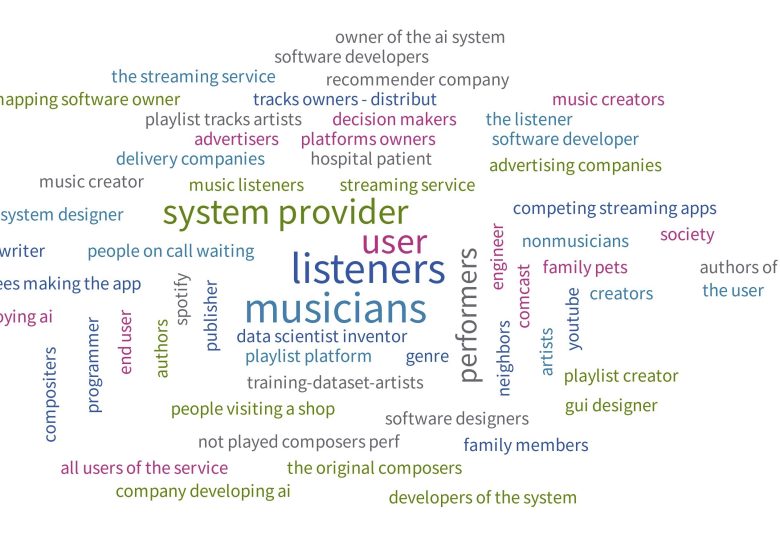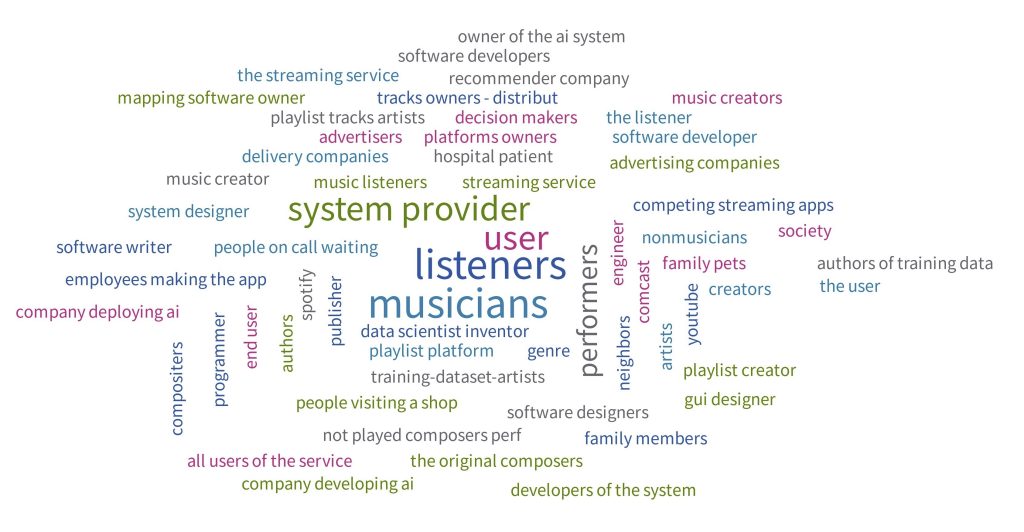Creative Ai ethics at ISMIR 2021

Creative Ai ethics at ISMIR 2021
When an intelligent machine composes a song, who gets the credit?
In November, our newly formed research group had the privilege of chairing a special session at the 22nd International Society for Music Information Retrieval Conference (ISMIR 2021) on the topic of Ethical Issues in Music Ai – Perspectives on authorship with creative artificial intelligence.
To set the stage for the discussion, I introduced an attentive audience of about 50 participants to the current state of intellectual property (IP) protection on creative Ai. Such protection comes mainly in the form of copyrights, patents or database rights, and could in theory cover the Ai systems themselves or some parts of them, their training data and the works produced with or by such Ai-enabled tools. However, the current legislative framework is fairly complex, often leaving the engineers, producers and artists dealing with open questions and uncertainties.
We then approached the complex and pluralist issue of authorship in the context of creative Ai works – not so much by providing definite answers, as they are not readily available, but by trying to identify the relevant questions. The issue is namely not just who gets the credits when a creative Ai-work is exhibited or sold. Instead, ethical issues involved range from cultural commons to exclusive ownership rights, and from the socially sustainable distribution of remunerations to potential neo-feudalism.
The first step, however, is to identify who is involved in the stakeholder network.

The workshop audience had the prime opportunity to test our first prototype of a practical ethics tool, which is developed for the purpose of mapping the stakeholder space of a given Ai production, and for eliciting the layers of authorship and the division of power in a given creative Ai project. The results of this preliminary study, as well as the next version of the ethics tool, will be published in 2022, so stay tuned for updates.
In case you were wondering: yes, we indeed meant to write Ai with lower-case i. This refers to the machine intelligence being taken as narrow, rather than general – that is, intelligent only to a limited degree. Whether the systems will one day warrant the capital i, is a discussion left for another time.
Anna-Kaisa Kaila